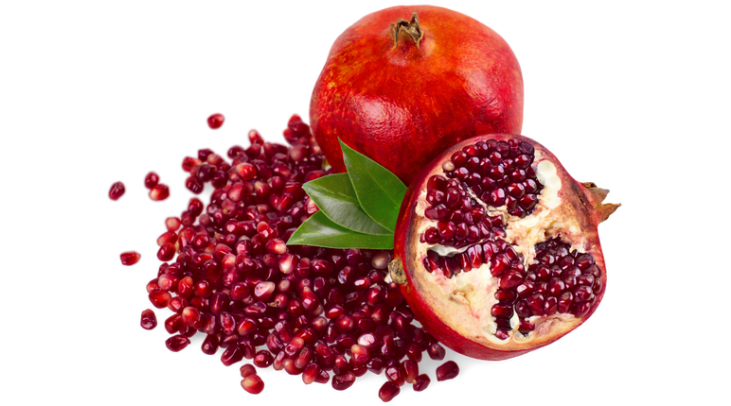Pomegranates have long been celebrated as one of the healthiest and most enjoyable fruits, packed with antioxidants, vitamins, and fiber. Although their origin spans from the Middle East to South Asia, India has emerged as a key player in consistently delivering high-quality pomegranates to international markets.As one of the top pomegranate producers worldwide, India has a strong agricultural foundation dedicated to this remarkable fruit. But what makes Indian pomegranates a mainstay in grocery stores and restaurants around the globe? Let’s explore the main factors contributing to their widespread appeal.
1. Exceptional Quality and Flavor
Known for their unique sweet and tart taste, Indian pomegranates, particularly the “Bhagawa” variety, are recognized for their size, vivid red color, and outstanding flavor. These qualities make them highly desired by consumers worldwide. The juicy, nutrient-rich arils not only tantalize the palate but also add a unique texture, making them a versatile component in various dishes, from salads and desserts to juices.
2. Optimal Cultivation Conditions
India’s varied climate and geographical features create excellent conditions for growing pomegranates. The long, dry summers and mild winters, coupled with ample sunlight, are ideal for their growth. Key pomegranate-producing states such as Maharashtra, Andhra Pradesh, and Karnataka yield some of the finest fruits globally. These favorable conditions ensure a steady supply of high-quality pomegranates year-round, meeting global market demands.
3. Commitment to Sustainability
With a growing emphasis on sustainable agriculture, many Indian pomegranate farmers now implement organic practices. As consumers increasingly seek out organic and ethically produced foods, Indian pomegranates stand out as an environmentally friendly choice. Often cultivated with minimal chemicals, these fruits appeal to health-conscious individuals. Additionally, advancements in irrigation and soil management techniques enhance both the quality and sustainability of the harvest.
4. Rising Global Interest in Exotic Fruits
As global eating patterns shift towards healthier choices, exotic fruits like pomegranates are gaining popularity. Recognized as a superfood due to their high antioxidant levels—especially punicalagins associated with heart health—pomegranates have seen a surge in demand among health-savvy consumers in Europe, North America, and beyond. The superior taste and texture of Indian pomegranates have made them a preferred option for grocery stores and dining establishments aiming to cater to this health-focused trend.
5. Strong Export Infrastructure
India has developed a robust export system that significantly contributes to the global availability of its pomegranates. In cooperation with private exporters, the Indian government has improved processes related to packaging, cold storage, and shipping. This infrastructure preserves the freshness and quality of Indian pomegranates as they reach distant markets. Established trade routes and strong connections with regions including the Middle East, Europe, the U.S., and Asia make India a reliable source of pomegranates worldwide.
6. Nutritional Advantages and Health Impact
Pomegranates are often labeled “superfruit” due to their rich content of vitamins, potassium, fiber, and antioxidants. These nutrients offer numerous health benefits, such as enhanced heart health, immune support, and anti-inflammatory effects. As awareness of these advantages grows, Indian pomegranates have gained traction in health food stores, juice bars, and wellness-focused restaurants. Their versatility allows them to feature in everything from smoothies to savory dishes, making them a common ingredient in kitchens globally.
7. Innovative Culinary Uses
Beyond being enjoyed fresh, Indian pomegranates are increasingly incorporated into a variety of dishes. The sweet-tart flavor of pomegranate arils adds a delightful touch to salads, salsas, sauces, and even savory meals like curries and pilafs. Pomegranate juice from Indian varieties is a favorite for cocktails and smoothies, while the arils are commonly used as toppings for gourmet desserts. This culinary flexibility and innovation contribute to the high demand for Indian pomegranates in both home and fine dining settings worldwide.
8. Long Shelf Life and Transport Ease
A significant factor in the international popularity of Indian pomegranates is their extended shelf life. When stored correctly, pomegranates can remain fresh for weeks, making them an ideal export fruit. Their protective outer skin prevents damage during shipping, ensuring that they arrive intact at global grocery outlets. This resilience allows Indian pomegranates to be transported over long distances without losing quality, making them available year-round in international markets.
The ascent of the Indian pomegranate as a staple in global grocery stores and restaurants is no mere coincidence. Factors such as exceptional flavor, health benefits, sustainable farming practices, and a strong export framework have solidified their place in the market. As the demand for nutritious, exotic fruits continues to expand, Indian pomegranates are likely to remain a favorite, providing flavor, nutrition, and a touch of cultural diversity to kitchens all over the world. Whether enjoyed fresh, juiced, or included in various culinary creations, the Indian pomegranate has truly secured its spot on the international stage.

